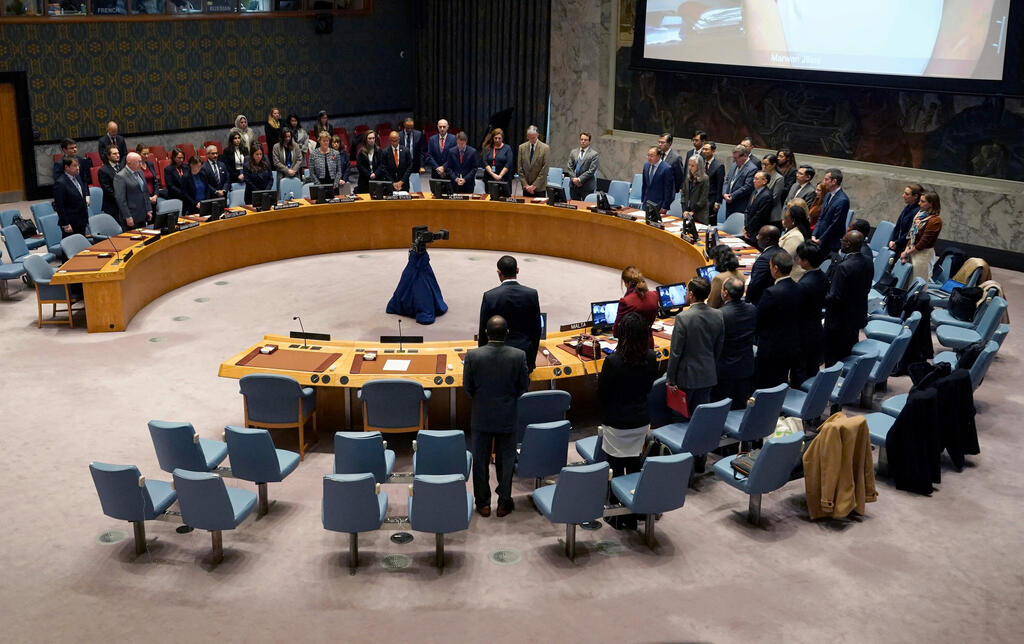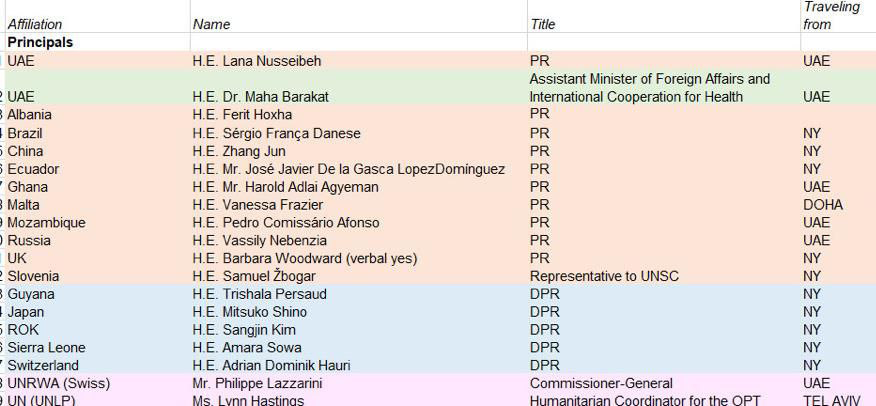Getting your Trinity Audio player ready...
A delegation of members of the United Nations Security Council, consisting of 16 ambassadors and their deputies, is slated to visit the Egyptian side of the Rafah Crossing on Monday. This visit, which has sparked controversy, aims to provide a firsthand view of the severe humanitarian crisis in Gaza and the UN's efforts to aid the Strip's residents. The United Arab Emirates, which represents the Arab League on the council, took the initiative to plan this visit, which was organized without any coordination with Israel.
Read more:
The United Arab Emirates is also covering the expenses of the trip, including the cost of flying the ambassadors to the location and then to El Arish. The ambassadors will be briefed on the situation at Rafah by Philippe Lazzarini, the director of the Palestinian aid agency UNRWA, and Lynn Hastings, the UN's humanitarian coordinator. They will also receive a briefing from Palestinian Health Minister Mai al-Kaila, as well as from Younes al-Khatib, the president of the Palestinian Red Crescent, and Majed al-Khalidia, adviser to Palestinian Authority President Mahmoud Abbas.
The ambassadors, who come from various African, Asian and South American countries, will observe a moment of silence in memory of the UNRWA workers who lost their lives in IDF bombings in Gaza and later will hold a press conference.
Three countries - the United States, Albania and France - declined the invitation to join the visit. However, the rest of the countries, including Britain, Russia and China, accepted the invitation from the United Arab Emirates. This invitation was extended not only to all the ambassadors of the countries on the Security Council but also to the five countries that will assume office on January 1, 2024.
In Israel, there is a sense of frustration that the Security Council, in the midst of a war, has chosen to focus solely on one side of the conflict. The council plans to examine only the humanitarian situation in Gaza and the suffering of its residents, while completely overlooking the Israeli side.
A spokesperson for UN Secretary-General António Guterres responded to Israeli criticism. "The entire visit is led by the United Arab Emirates. We, as the United Nations Secretariat, are not involved. You need to turn to them to answer questions about timing and location," according to the spokesperson.
Israel's ambassador to the UN, Gilad Erdan, expressed his disappointment with the Security Council's visit. "The biased visit of the Security Council is a new low that proves that the council only cares about the residents of Gaza and completely ignores the residents of the south and the hostages," Erdan said.
"The distorted visit destroys any legitimacy for the council's decisions regarding the war in Gaza. The Security Council, which has not even condemned Hamas and the October 7 massacre to this day, comes to visit and show concern only for the humanitarian situation in the Strip, while completely ignoring the suffering and situation of the residents of the south, who were massacred by Hamas, and the fate of the captives. It's a disgrace!"





